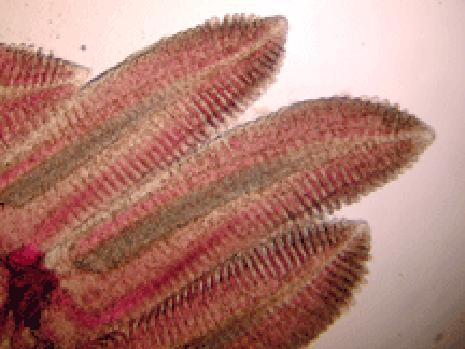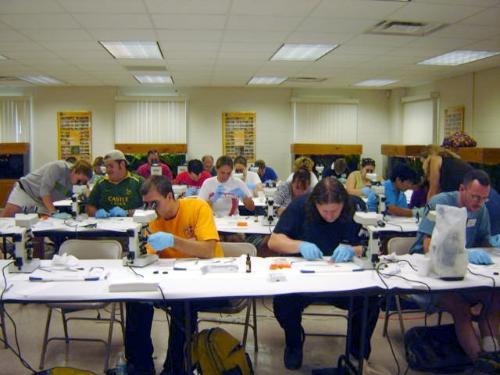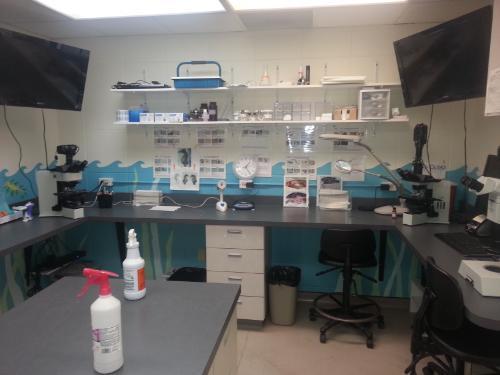
Gill wet mount

Fish Health Workshop

TAL Diagnostic Lab
Aquatic Animal Health Extension
The UF Tropical Aquaculture Lab's (UF TAL) aquatic animal health extension programs assist: a) aquaculture producers, wholesalers, retailers, aquarists, and other industry personnel; b) state and federal agency personnel; and c) veterinarians and other fish health professionals. Secondarily, our extension publications, podcasts, and lectures engage youth and the general public.
TAL’s aquatic animal health programs can be divided into three main areas of focus:
- diagnostics, health and disease management, and therapy
- aquatic animal health education
- regulatory issues
Good management, proper disease diagnostics, and science-based therapy are important for maintaining fish health and essential for reducing losses, maximizing profits, and promoting responsible use of drugs and chemicals. At TAL, a principle goal is reduction of losses in the industry caused by disease through proper diagnosis, management, and therapy for disease outbreaks and adoption of general fish health management principles by industry clients. The TAL’s fish disease diagnostic laboratory (FDDL) provides disease diagnostics and management recommendations for these clients. Prevention is also an important area of focus and includes assistance with development of farm-specific vaccines, judicious and legal drug use, and other management methods. In addition, the FDDL assists with health certification for shipments and supports veterinarians and fish health managers who seek advice or assistance.
Aquatic animal health education, including guidance on general health management and good biosecurity practices, are critical to the profitability and survival of all aquaculture industries in the state and nation. In addition, emerging diseases and related issues have the potential to significantly impact the aquaculture industry at all levels — from producer to consumer. There is a need and desire among producers, tropical fish wholesalers, retailers, and hobbyists for science-based, professional, and trustworthy fish health information and fish veterinary expertise. Outreach/extension publications, lectures and seminars, two-day fish health management workshops, podcasts, and other venues provide relevant veterinary information that is accurate, relevant, and timely.
Regulatory issues relevant to fish health management and fish transport are important areas of outreach. Federal and state aquatic health programs have significant regulatory and economic impact on Florida’s producers, both in the public and private sectors, and with regard to both commercial aquaculture and stock enhancement. Florida’s major aquaculture commodities differ significantly from more “mainstream” commodities such as catfish, salmon, and trout, and a large knowledge gap exists among regulators with regard to ornamental fish. The TAL serves as a conduit and scientific guiding force with regard to ornamental fish industry regulatory concerns, and provides guidance for health programs impacting other aquaculture commodities in Florida. The TAL works closely with the Florida Department of Agriculture and Consumer Services (FDACS), Florida Fish and Wildlife Conservation Commission (FWC), the Food and Drug Administration Center for Veterinary Medicine (FDA-CVM), the US Department of Agriculture, Animal and Plant Health Inspection Service, Veterinary Services (USDA-APHIS-VS), and other regulatory bodies to provide relevant, science-based information to promote reasonable, efficient, and pragmatic regulatory oversight and to help increase legal drug availability and other health management options.
